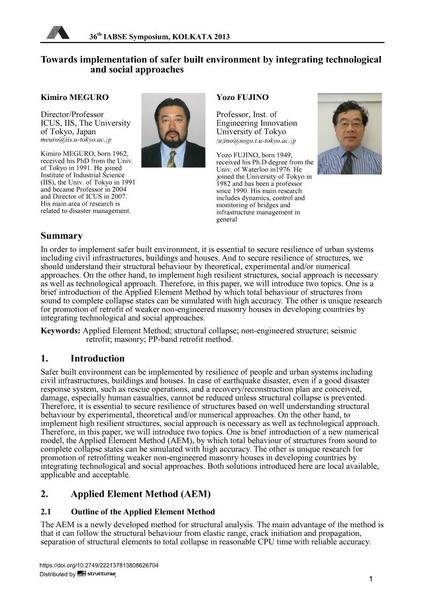Towards implementation of safer built environment by integrating technological and social approaches

|
|
|||||||||||
Détails bibliographiques
| Auteur(s): |
Kimiro Meguro
Yozo Fujino |
||||
|---|---|---|---|---|---|
| Médium: | papier de conférence | ||||
| Langue(s): | anglais | ||||
| Conférence: | IABSE Symposium: Long Span Bridges and Roofs - Development, Design and Implementation, Kolkata, India, 24-27 September 2013 | ||||
| Publié dans: | IABSE Symposium Kolkata 2013 | ||||
|
|||||
| Page(s): | 1-9 | ||||
| Nombre total de pages (du PDF): | 9 | ||||
| Année: | 2013 | ||||
| DOI: | 10.2749/222137813808626704 | ||||
| Abstrait: |
In order to implement safer built environment, it is essential to secure resilience of urban systems including civil infrastructures, buildings and houses. And to secure resilience of structures, we should understand their structural behaviour by theoretical, experimental and/or numerical approaches. On the other hand, to implement high resilient structures, social approach is necessary as well as technological approach. Therefore, in this paper, we will introduce two topics. One is a brief introduction of the Applied Element Method by which total behaviour of structures from sound to complete collapse states can be simulated with high accuracy. The other is unique research for promotion of retrofit of weaker non-engineered masonry houses in developing countries by integrating technological and social approaches. |
||||
| Mots-clé: |
reconception pour effets sismiques
|
||||
